Executive Courses
Upskilling Your Workforce through TDSI’s Executive Courses
TDSI’s Executive Courses under its Continuing Education arm look at domain-specific disciplines in systems thinking and systems engineering, as well as any in-trend/ emerging technologies, to upskill the Singapore defence workforce in line with the nation’s advocacy for lifelong learning. Embracing the digital transformation landscape today, participants will benefit from these courses, learning from subject matter experts from the defence technology community and/or academic institutions, on valuable topical knowledge and skillsets to manage real-world applications. This allows course participants to strengthen their capabilities and value-add to their employing organisations.
TDSI’s Executive Course “Military Navigation Systems Workshop” for Singapore’s Defence Technology Sector
Given the critical importance of navigation in modern military systems and operations that leverages on smart technologies, access to reliable navigation data is imperative while denying them to adversaries during military operations. The executive course on “Military Navigation Systems Workshop” aims to highlight the vulnerabilities in military navigation systems under different deployment scenarios, and share potential corresponding counter-measures. Participants from the defence technology community were appreciative of the knowledge gained from the workshop and acknowledged that the learning was highly relevant and impactful to their current field jobs/ projects. This workshop is well-recognised by the Professional Engineers Board and qualified for 6 Professional Development Units.
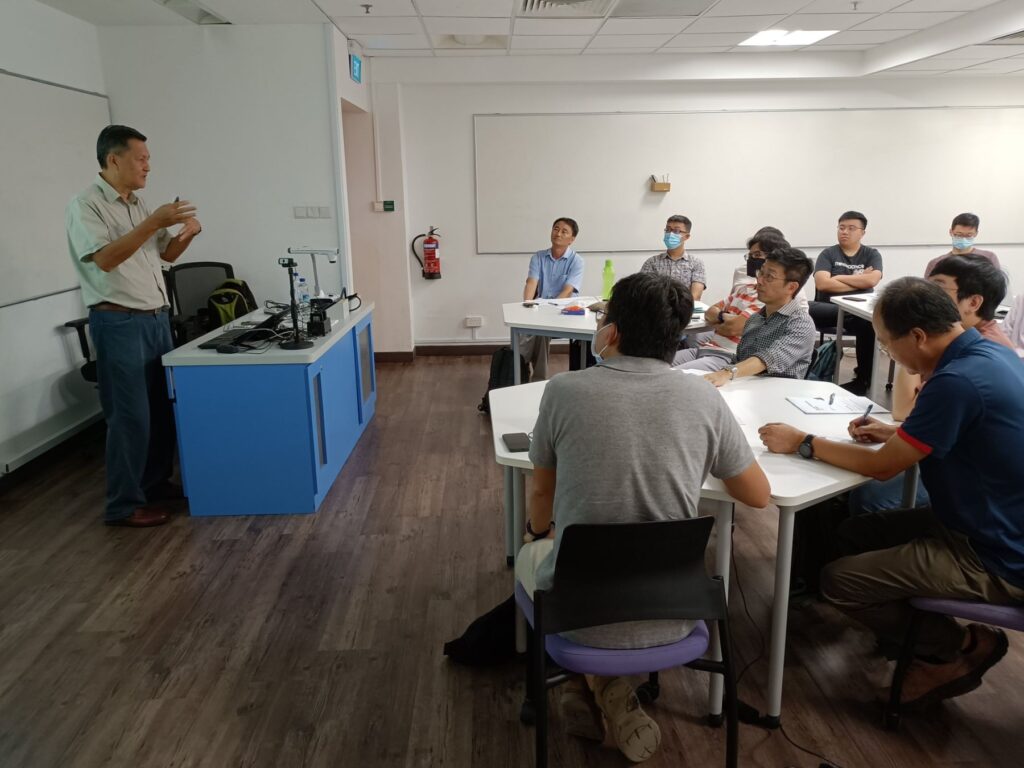
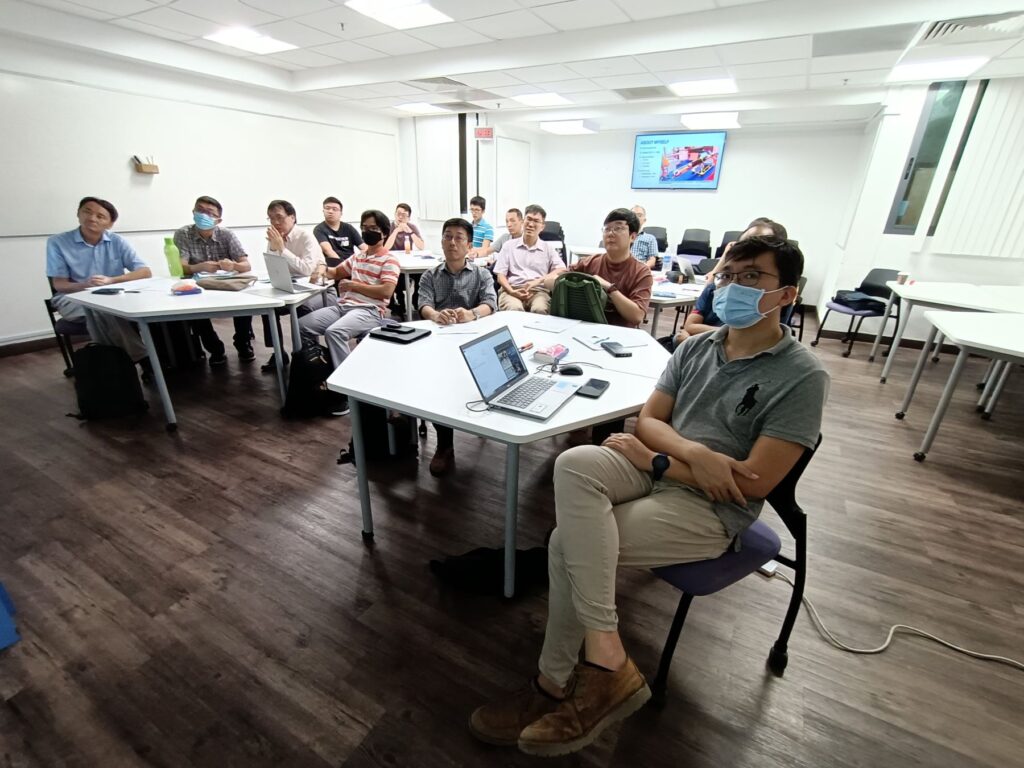
TDSI’s Executive Course “Systems Engineering and Analysis of Emerging Advanced Technologies for Defence Applications”
It is important for the Singapore defence forces to be at the frontier and be knowledgeable about emerging technologies for defence applications. The executive course on “Systems Engineering and Analysis of Emerging Advanced Technologies for Defence Applications” aims to present concepts and methods for engineering and analysing emerging advanced technologies, that include artificial intelligence and directed energy weapons, for defence applications. Course participants from the defence technology community have learnt and gained insights from the course that introduced concepts in complexity theory, strategic thinking, technology assessment, systems engineering and systems analysis. Course participants were appreciative that the learning gained have value-added to their current work with their primary affiliated organisations in the defence eco-system.
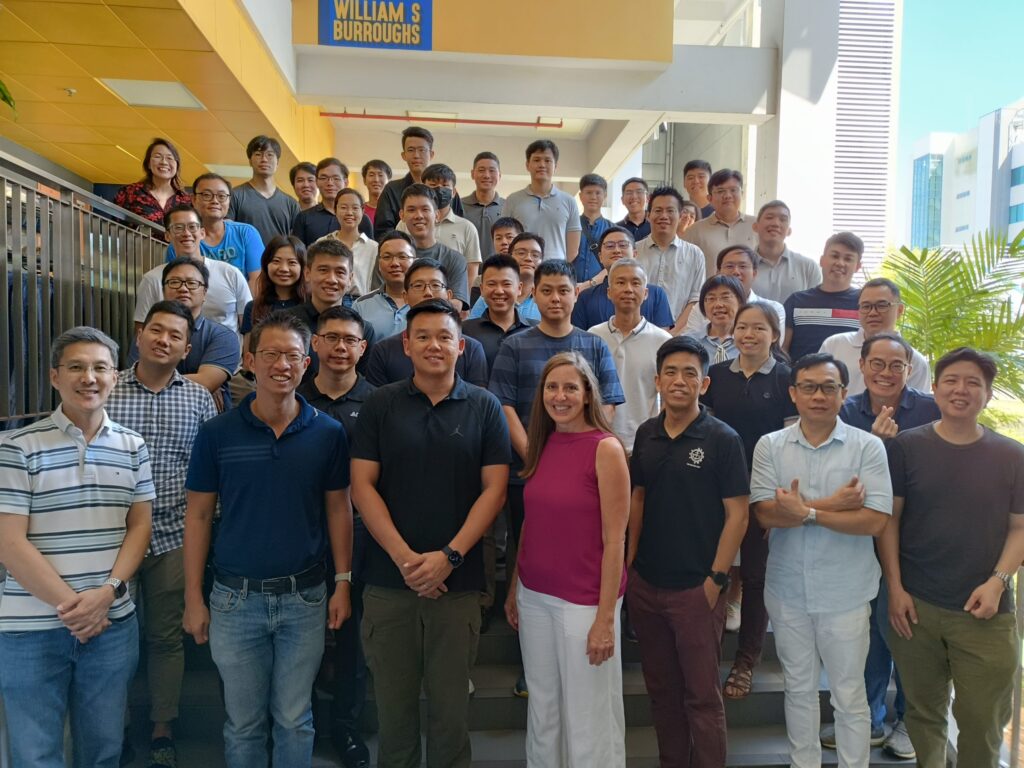
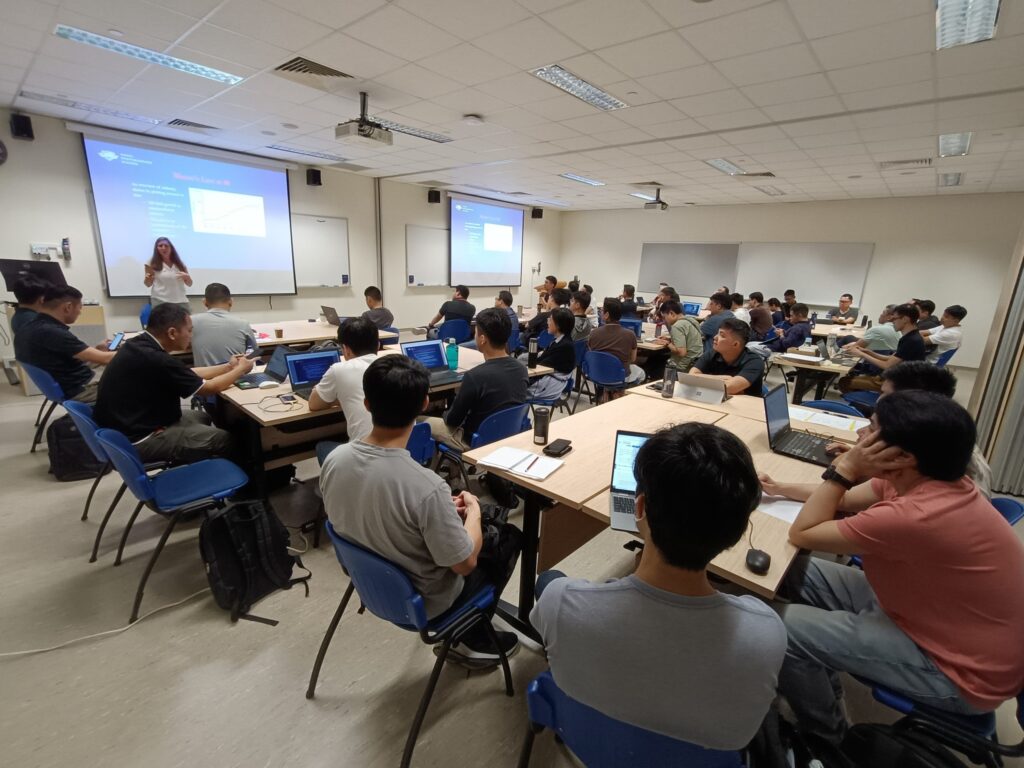
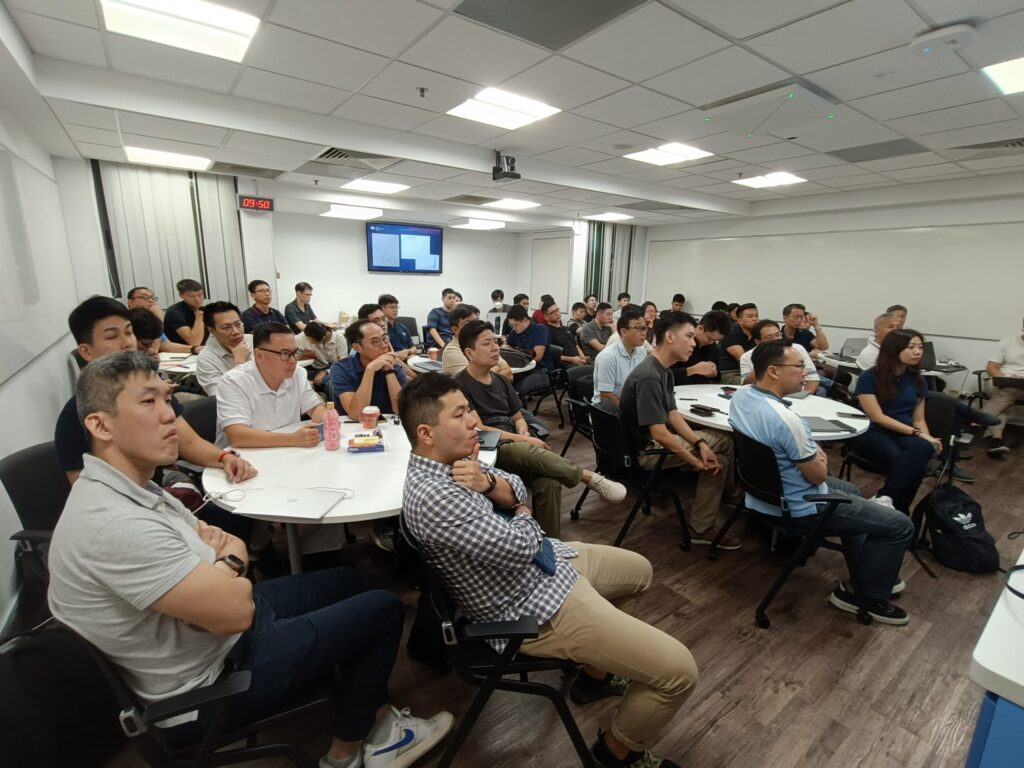
TDSI’s Executive Course “Generative Artificial Intelligence”
Artificial Intelligence (AI) technologies have been widely adopted in operations and work processes/ systems at the national level and in various industries. Generative AI is the latest cutting-edge technology that has been launched to extreme popularity, with progressive adoption by enterprises and industries because of its capabilities that can boost productivity and value-add decision-making, alongside many other deployment opportunities. Recognising the increasing importance of Generative AI for the defence sector, TDSI organised the executive course on this in-trend technology for the Singapore defence technology community to equip them with the fundamental knowledge of key concepts and applications of Generative AI, included algorithms such as generative adversarial networks (GANs) and variational autoencoders (VAEs). Course participants learnt how Generative AI could enhance military operations, from synthetic training data generation to scenario planning and decision support systems. This course is well-recognised by the Professional Engineers Board and qualified for 12 Professional Development Units.
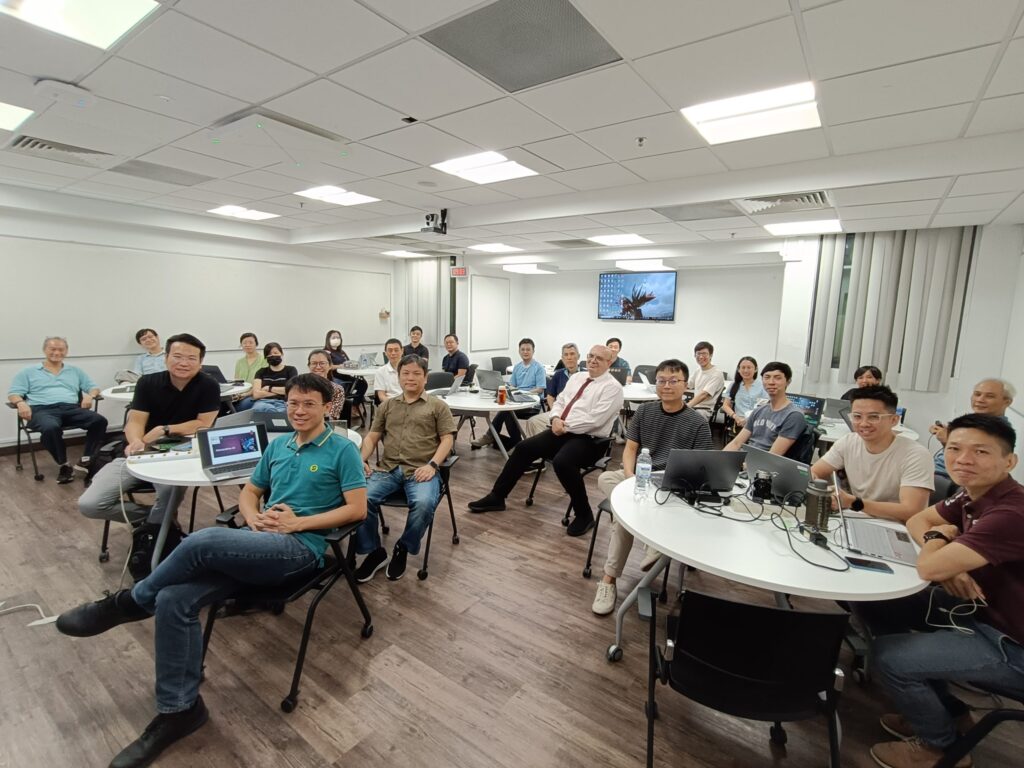
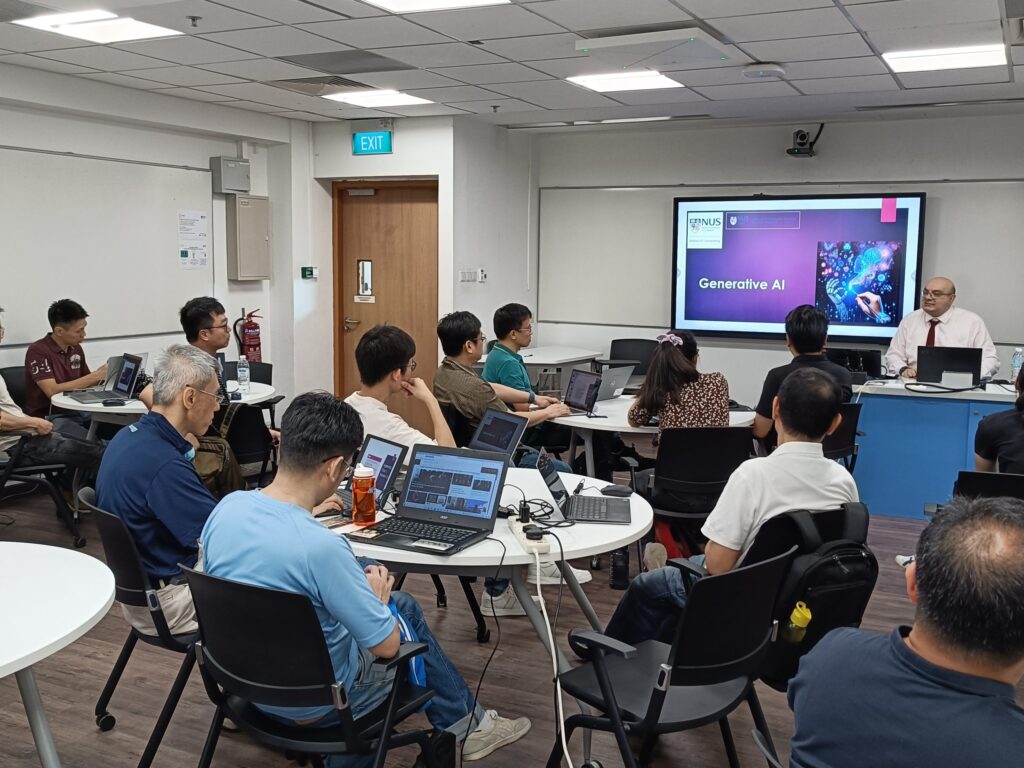
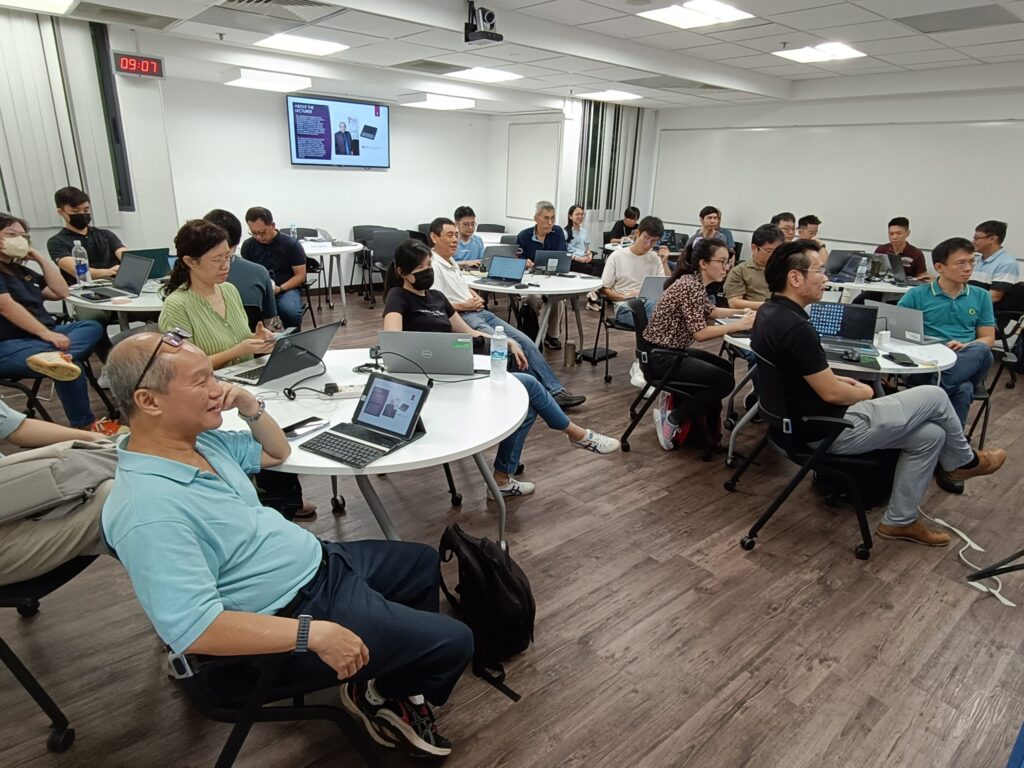
TDSI’s Executive Course “Swarm Intelligence and AI-Driven Unmanned Aerial Systems”
Swarm intelligence has become increasingly important for the defence community to learn as the technology is reshaping how autonomous systems operate in complex and contested environments. It is strategically important for the defence professionals to understand swarm intelligence technology to gain operational advantage, and with technology readiness, to ensure resilience and shape the future of warfare. Swarm intelligence is also a dual-use technology that could be applied from search-and-rescue and disaster response to maritime surveillance, making it essential for multi-domain operations. This 3-day intermediate-level course of TDSI focused on the fundamental and advanced concepts of multi-agent autonomous systems in the context of aerial swarms, specifically on the latest state-of-the art and practical applications. The course also provided a comprehensive overview of robotics and multi-agent systems, swarm formation, communications, task scheduling and allocations, swarm operations, as well as applications for heterogeneous systems and an introduction to game theory.
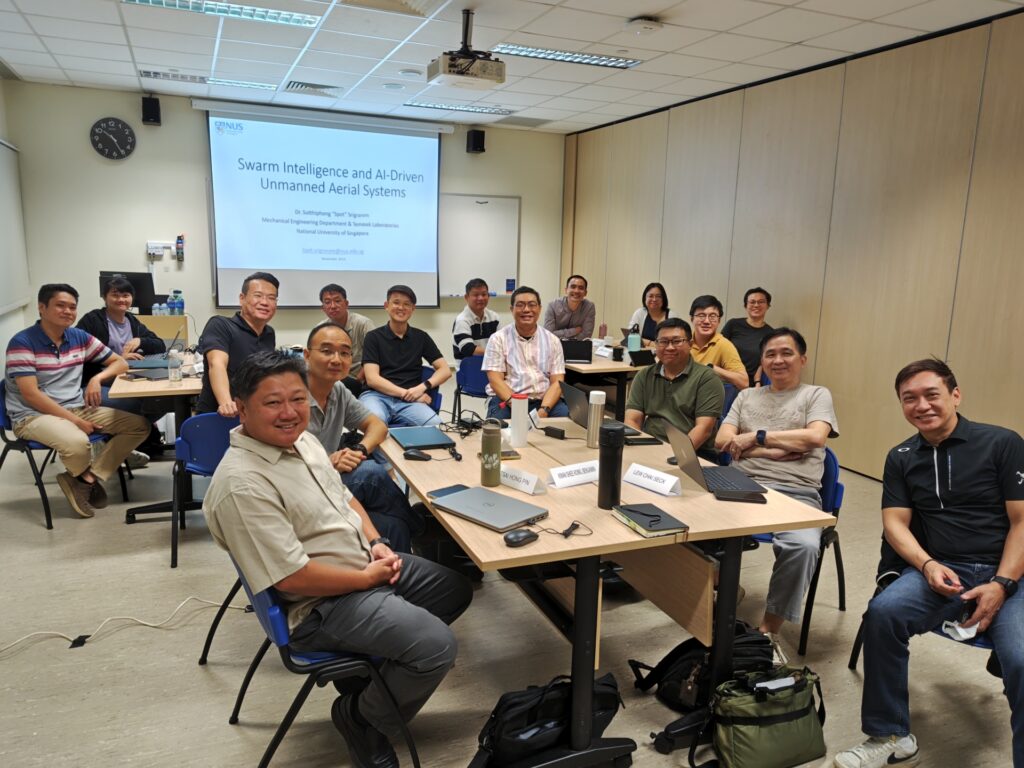
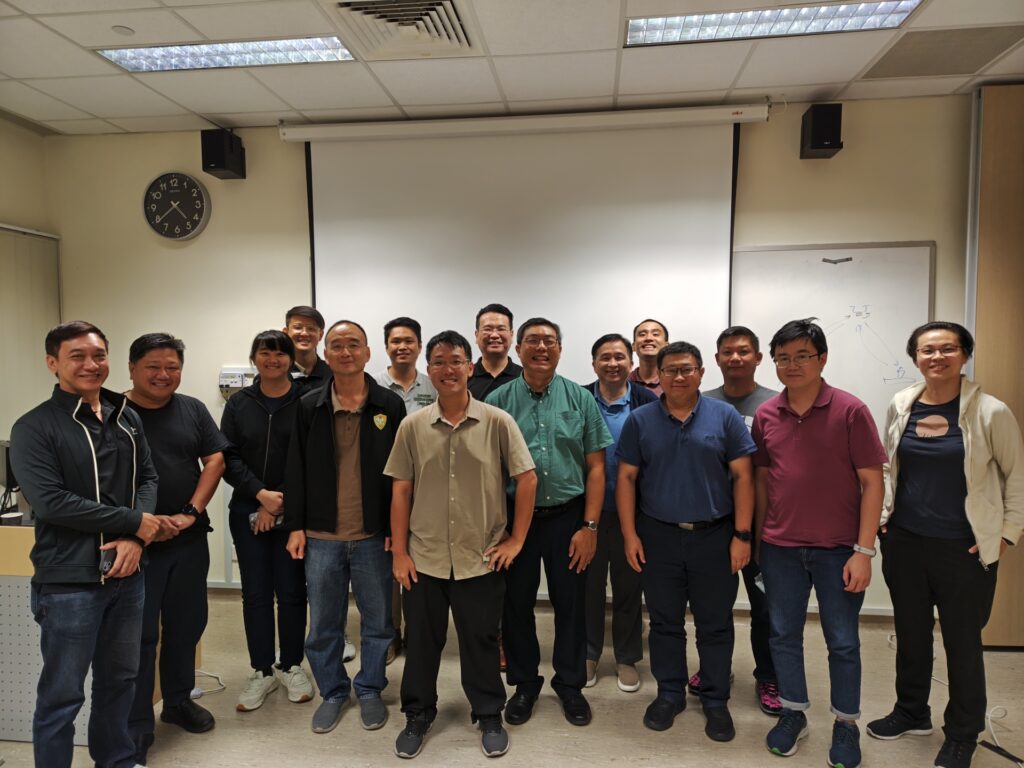

Enabling Mobile Wide-Area
Cyber Physical Systems
Overview
Cyber Physical Systems (CPS) encompass physical systems in which sensing, control, networking and computation capabilities are integrated. CPS are instrumental to current and future military operational needs. Some examples of military-relevant CPS are unmanned vehicles, weapon systems, mission platforms, Internet of Military Things (IoMT). Given that these systems and platforms integrate multiple cyber and physical subsystems, the CPS design process is a complex endeavour that involves many domains – from cyber (e.g. software, control, computing, and communication) to physical (e.g. structural, mechanical, thermal) to manufacturing. Leveraging appropriate digitalisation along with artificial intelligence (AI)/ machine learning (ML) could lead to digital transformation that facilitates the rapid development of military cyber-physical systems.
Advanced military CPS also impose increasing demands on the communications networks, which include higher data rates, flexible connectivity across peers and echelons, wide-area coverage, mission critical operations, edge services and data/information-centric warfare. Advances in Commercial-off-the-shelf (COTS) technologies such as 5G/6G and Non-Terrestrial Networks (NTN) may be leveraged to meet these demands.
This seminar will host two talks that seek to illustrate the challenges and demands of advanced military CPS and share on enabling approaches and technologies:
Topic 1 - Digital Engineering for Unmanned Air Vehicles (UAVs): Leveraging Model Based Mission and System Engineering for UAV Cyber Physical Systems Development (Speaker: Mr Prem Andrade, Distinguished Engineer, ANSYS)
Digital Engineering plays a key role in Defense Technology Acquisition globally. There is a move towards model-based acquisition with a focus on meeting the capability needs of an operational region. The motivation is to create a digital thread through the selection, development, testing and operation phase of the acquisition that will enable traceability as well as early virtual verification against mission success.
UAVs play a critical role in modern conflicts. These vehicles must have very high situational awareness of not only other assets (friend and foe) but also of the environment they are in and maintain clear communication, orientation and engagement with a larger system of systems. This talk will cover how digital engineering can create a model-based development of UAVs, starting from capturing the operational needs, to design of key subsystems, to its verification and validation to meet its mission success metrics. It will also cover the role that different levels of analysis and simulation along with AI/ML can be leveraged in this framework.
Topic 2 - Enabling Network-Centric, Data/Knowledge-Centric Warfare using COTS Systems (Speaker: Dr Thein Than Tun, Advanced Solution Engineer, Keysight Technologies Singapore)
The concept of information superiority was based on a simple but powerful premise: Connecting sensors and shooters throughout the battlespace helps warfighters carry out their missions more effectively and rapidly, improving the odds of success and saving lives. The implementation of this concept is commonly known as Network-Centric Warfare. Today’s networking technologies are quickly evolving, enabling them to move more data, more rapidly, and with greater connectivity than ever before.
The emergence of 5G/6G networks presents the ability to support more sensors to support an "IoMT" and the introduction of NTN enhances coverage and reach. Connectivity across planes, ships, Humvees, UAV, USV, AGV, etc, and personnel from edge to command can be integrated via such technologies. The mesh-like Integrated Access Backhaul (IAB) feature allows for resilient extended coverage and range of service. The incorporation of AI/ ML to manage sensor data saturation, user demands, and network management would transform Network-Centric Warfare to Data/Knowledge-Centric Warfare. 5G will also help to secure communications and discover security gaps.
These advances present new opportunities to change how military operations are conducted but at the same time present greater system development and deployment challenges. The increased challenges include the need to understand and analyse impact of operation needs, optimal deployment, system monitoring and the maintenance of highly assured network services. This talk will shed light on some applications associated to, topics and solutions to stay with the rapidly evolving changes.
Learning Outcome
Course Outline
Who Should Attend
Lorem ipsum dolor sit amet, consectetur adipiscing elit. Ut elit tellus, luctus nec ullamcorper mattis, pulvinar dapibus leo.
Speakers
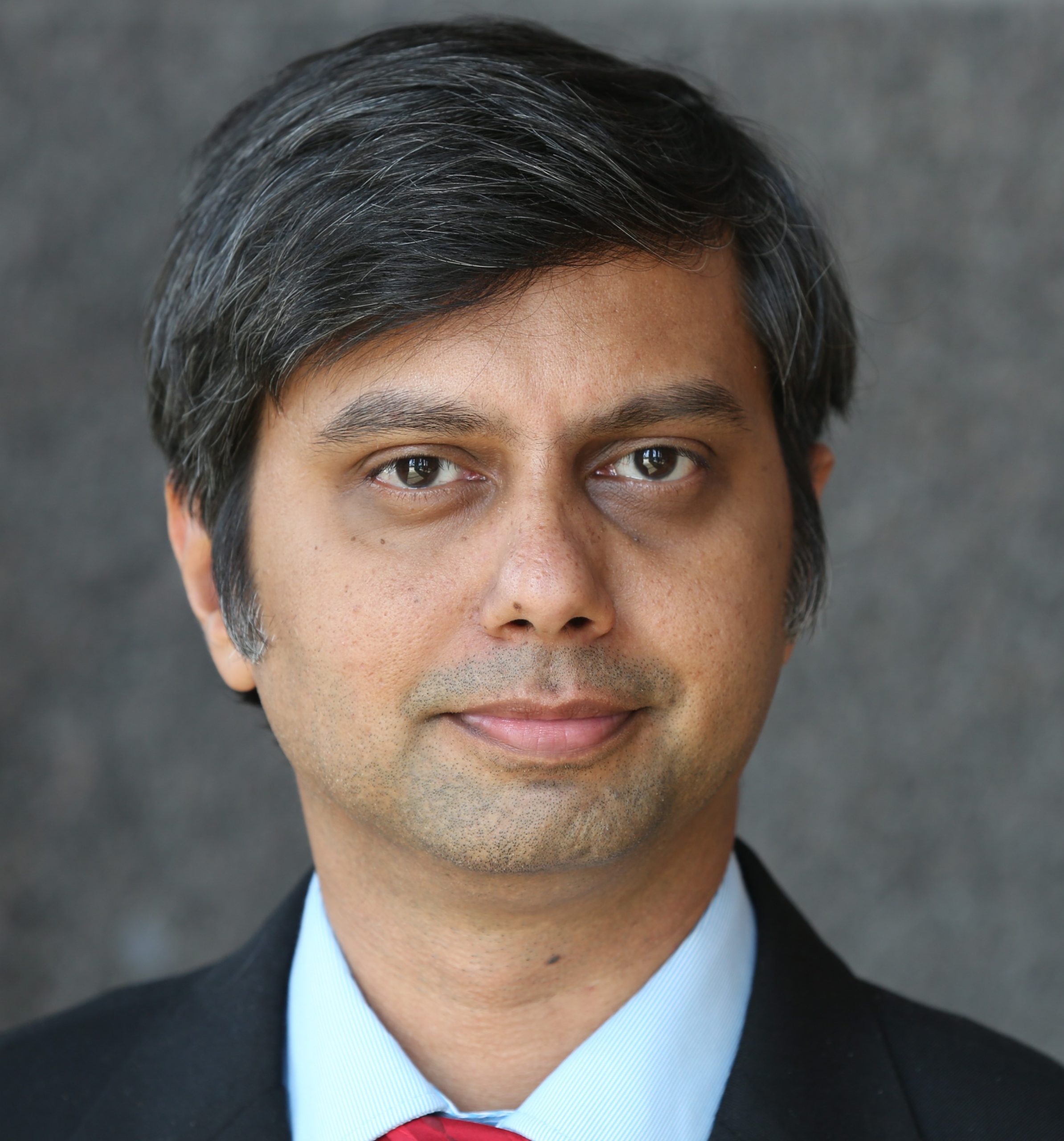
Mr Prem Andrade
Distinguished Engineer, Ansys
2:00pm to 3:00pm
Digital Engineering for Unmanned Air Vehicles: Leveraging Model Based Mission and Systems Engineering for Unmanned Aerial Vehicles Cyber-Physical Systems Development
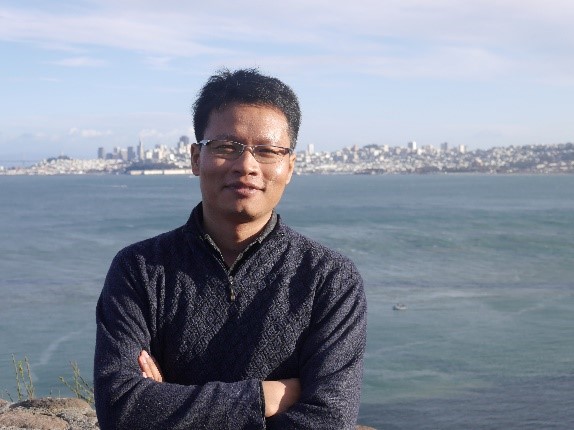
Dr Thein Than Tun
Advanced Solution Engineer, Keysight Technologies Singapore
3:00pm to 4:00pm
Enabling Network-Centric, Data/Knowledge-Centric Warfare using COTS Systems
Details
- 26 Jun 2024, 2:00 pm - 4:00 pm
- 2 hours
- NUS Block EA, Engineering Auditorium
Status
This event is now closed.
